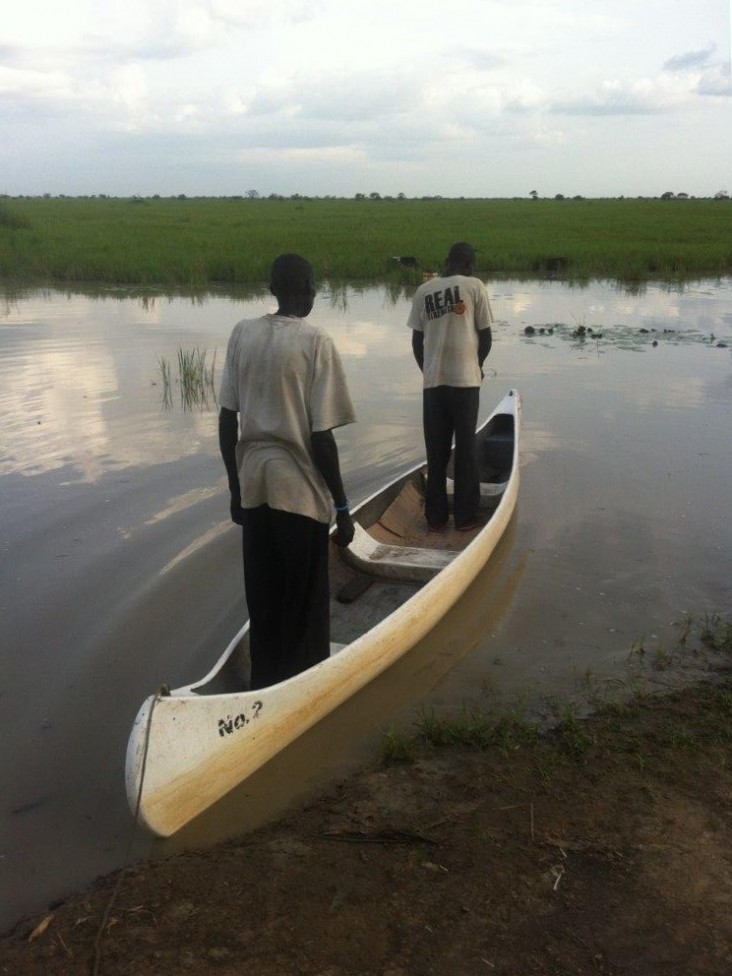
Oct. 2014—Cut off from South Sudan’s road network by wetlands and seasonal floods, the people of Tayer, Unity State, depend on the nearby Nile River for fish and trade. Unfortunately, fisheries equipment is scarce in Tayer and transportation by locally available dugout canoes is very slow, limiting the markets that fishermen and traders can reach.
Further complicating local livelihoods, Tayer is located on the border with Lakes State, recently a center of conflict between the Nuer and Dinka communities. Youth from this border area have limited opportunities for employment and sometimes engage in cattle raiding, igniting deadly feuds.
To support fisheries livelihoods for unemployed youth, strengthen local transportation networks and promote positive Nuer-Dinka relationships, USAID supported a fisheries training program in Tayer in May 2013. A South Sudanese NGO partner trained groups of integrated Nuer and Dinka youth in fishing techniques and provided them with fishing equipment and fiberglass canoes. The program’s benefits were immediate—participants reported higher fish yields, more fish in local markets, faster transportation between villages and better relations between neighboring communities.
When violence overtook parts of South Sudan in December 2013, many people feared the fighting would spread to the Unity-Lakes state border. Although the border area is one of the most affected by displacement and hunger resulting from the current crisis, it has remained relatively peaceful. Grassroots cooperation between border communities has ensured continued trade and safe movement of displaced Nuer from Unity State into Dinka communities in Lakes State.
An emergency livelihoods assessment conducted by an international NGO in June 2014 determined that the fiberglass canoes from the USAID-supported Tayer fisheries program had become an essential part of local food distribution and humanitarian networks. Tayer youth are now paddling across the Nile to trade their livestock in new markets, returning home with much-needed grain and newfound stability from Nuer-Dinka trade partnerships.
The youth are also traveling far down the Nile to help move civilians stranded by the conflict to safe havens. By increasing local trade and fishing yields, facilitating positive Nuer-Dinka relationships, and providing a lifeline for hundreds of the conflict’s most vulnerable, the Tayer fisheries program has become an integral part of local conflict mitigation and humanitarian successes.
Says Tayer resident Gabriel Gatloth Liah, “Canoes are the symbol of peace along the river.”
LINKS
Follow @USAIDSouthSudan, on Facebook, on Flickr







Comment
Make a general inquiry or suggest an improvement.